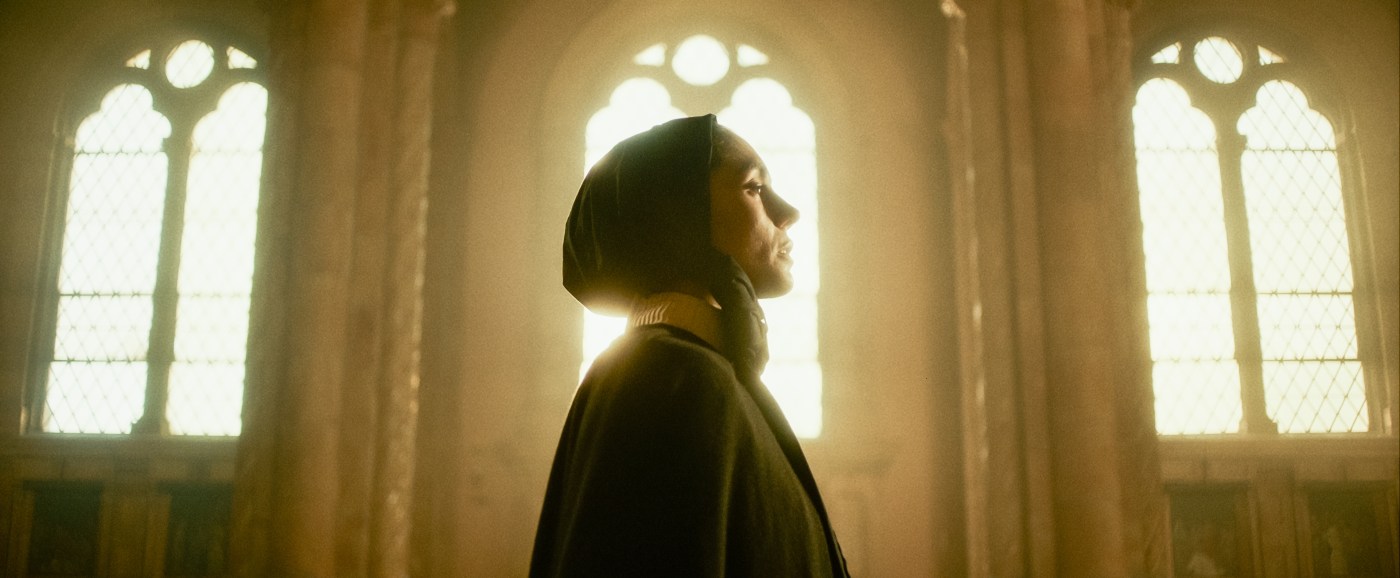
‘Cabrini’ a moving biopic of superhero for the poor
From Alejandro Monteverde of the recent hit “Sound of Freedom” comes “Cabrini,” an undeniably moving biographical film about America’s first saint, played with great power and panache by Neapolitan actor Cristiana Dell’Anna (“The King of Laughter”). She is plucked from her native Lombardy by Pope Leo VIII (the great Giancarlo Giannani) and sent to New York City where millions of Italians had passed through Ellis Island only to find menial jobs, if not abject poverty. We see a boy named Paolo (Federico Ielapi) rushing his dying mother in a cart and being refused treatment at a New York City hospital. Abandoned Italian children in the city sleep in storm drains. The overwrought score by Gene Back (“Burning Man the Musical”) is only getting started.
Whatever its excesses, “Cabrini” is always centered and given weight, significance and dignity by the fine performance of Dell’Anna, a regular on Italian TV’s “Gomorrah.” Almost drowned as a child and afflicted with weak lungs, “Mother” Cabrini is paradoxically a tiny tower of strength, who will not be denied her chance to make the world a better place by providing a haven for abandoned children.
Sent to the dangerous slum known as Five Points (familiar to fans of Martin Scorsese’s 2002 entry “Gangs of New York”), Cabrini and her young nuns rehabilitate an orphanage space and open a small hospital. With almost no support from the Catholic archdiocese or its Irish-American Archbishop Michael Corrigan (an excellent David Morse), Cabrini makes a difference and saves one adolescent named Vittoria (a breakthrough turn by Romana Maggiora Vergano) from prostitution.
The film, which switches from Italian spoken in Italy to English (mostly) in the Untied States, is nothing new in terms of inspirational dramas. But after years of superhero films, it’s refreshing to see a drama about a real superhero played by this sly powerhouse of an actor. Dell’Anna stands firmly before Pope and Archbishop alike, daring them to underestimate her. Mexico-born director Monteverde, who is partial to stately compositions, has a strong sense of the geography of New York City. In a horse-drawn street car, Cabrini travels up to 53rd St. for her first visit to the dismissive Corrigan. In just a few shots, Monteverde gives us a sense of how Cabrini and her nuns create a space where frightened children can feel safe and cherished. Education is a crucial element in Cabrini’s philosophy.
Cabrini enlists a reporter for the New York Times in her crusade to create better conditions for the city’s poor immigrants. This theme is treated with sympathy, sensitivity and insight in “Cabrini.” When she opens an orphanage in the Upper West Side, we hear one onlooker describe her and her children as “brown-skinned filth.” The city’s mayor (John Lithgow) shuts Cabrini’s West Side operation down only to offer her an abandoned property beside the Hudson in distant Washington Heights.
The screenplay by Rod Barr (“Sound of Freedom”) is nothing if not laser-guided to Cabrini’s drive, her refusal to be denied and her resignation to her own premature death (she actually lived to be 67). Barr may play the, “We are survivors,” card one too many times. But scenes of Morse and Dell’Anna struggling as Cabrini very slowly wins Archbishop Corrigan over are a highlight. Corrigan’s recollection of the treatment of the Irish in the New World is a part of his conversion. Vittoria’s speech about how she saw Cabrini’s cloak as the nun’s “armor” is stirring. “Cabrini” is quite an achievement.
(“Cabrini” contains mature themes, epithets, violence and profanity)
“Cabrini”
Rated PG-13. At the AMC Boston Common, AMC South Bay, AMC Causeway and suburban theaters.
Grade: A-


